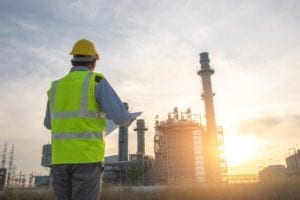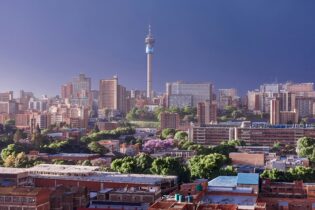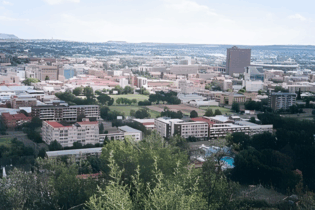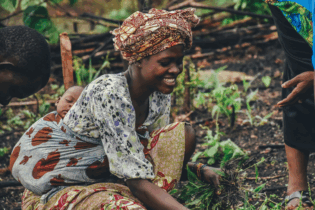AECOM, the global leader in integrated infrastructure, is poised to play a role in potential projects that have significant support from the R100 billion Infrastructure Fund announced by President Cyril Ramaphosa in his State of the Nation Address on 11 February.
This is according to Africa MD Darrin Green, who comments that there are opportunities in student housing, digitalisation and water infrastructure – all areas where AECOM has extensive experience and expertise. President Ramaphosa stated that the Infrastructure Fund will blend resources from the fiscus with financing from the private sector and development institutions. Such partnering between government and the private sector is essential to get these projects off the ground and achieve results. Green notes that the government has also committed R791 billion worth of funding towards infrastructure in the 2021 Medium-Term Expenditure Framework (MTEF). Here efficient procurement is key in terms of the government’s capacity to bring projects to market in a timely fashion. “We are all aware of the need for sound procurement principles, but real innovative thinking needs to happen so that procurement can be dramatically accelerated to have the necessary impact on the economy – and quickly,” comments Green. He adds that the consulting engineering and construction sector has been in serious difficulty and shrinking for some time, certainly prior to the Covid-19 pandemic, and is steadily losing skills and capacity to support the infrastructure drive. “The emphasis needs to be on fast-track procurement and delivery,” urges Green. The biggest opportunities in terms of infrastructure in Africa at the moment are: energy (particularly renewables such as hydro, wind and solar power), Environment, Social and Governance (ESG), digital-related infrastructure such as data centres, and basic infrastructure, especially in terms of water management, reuse and sustainability. Capacity and skills remain a challenge, while funding is always a constraint, especially where budgets are being redirected. Looking ahead, Green predicts that 2021 is likely to be a year of consolidation and adaptation for AECOM. “The vaccine rollout will play a major role in both South Africa and the rest of Africa in terms of bringing back economic activity and confidence. The consulting engineering industry is key to economic recovery, being second in the supply chain after government and client procurement.”On the international front, AECOM recently announced its ‘Think and Act Globally’ strategy to extend its industry-leading, global expertise to each of its projects around the world, transforming the way it delivers work through technology and digital platforms, and enhance its position as a leading ESG company.
Green highlights that this strategy is having a major impact in providing access to in-house subject matter experts around the world. “We now have prioritised time to talk with our global counterparts and share our expertise, opening up our knowledge networks exponentially. Also, as our digital communication tools utilisation becomes mainstream, accessing this network remotely has never been simpler, allowing innovative new client solutions to be shared quickly and efficiently.” Here the focus is increasingly on digitalisation and innovation. “We certainly see these trends accelerating, and perhaps more so in Africa, where innovation and digital technology can leapfrog and bridge the relative absence of hard infrastructure,” notes Green. AECOM is spearheading all aspects of digital design tools, including virtual environmental stakeholder digital rooms and virtual whiteboarding tools for client planning sessions in the client interaction and project stakeholder realm. The use of remote sensing, drones and digital tools on-site for streamlining inspection requests, test results and approvals is also becoming more prominent, as with the pilot site at the Polihali Western Access Roads project in Lesotho. Responding to the ongoing challenge posed by Covid-19 and the altered working landscape, Green stresses the importance of collaboration in meeting clients’ requirements in this difficult time. Face-to-face meetings, for example, have evolved into more complex remote experiences. However, technology tools and platforms are catching up. “The key is flexibility and using digital and physical tools to enhance the client experience in a tangible way through to the delivery of the project. Clients are now more digitally aware; we can provide digital twins for projects once the modelling is complete and work together to have efficient data at our fingertips,” elaborates Green. “It is important to note that we can leverage AECOM’s world-leading skills for our clients. We can assist in more areas than one might realise – from digital engagement tools to ESG advisory to hard infrastructure and project management and controls. We strive for the flawless delivery of our projects. Considering all environmental impacts is crucial; at the core of what we do is our belief in building sustainable legacies. Sharing our significant internal data and solutions certainly allows us to build on our innovative experiences so that we keep improving and staying ahead of the pack,” concludes Green.





